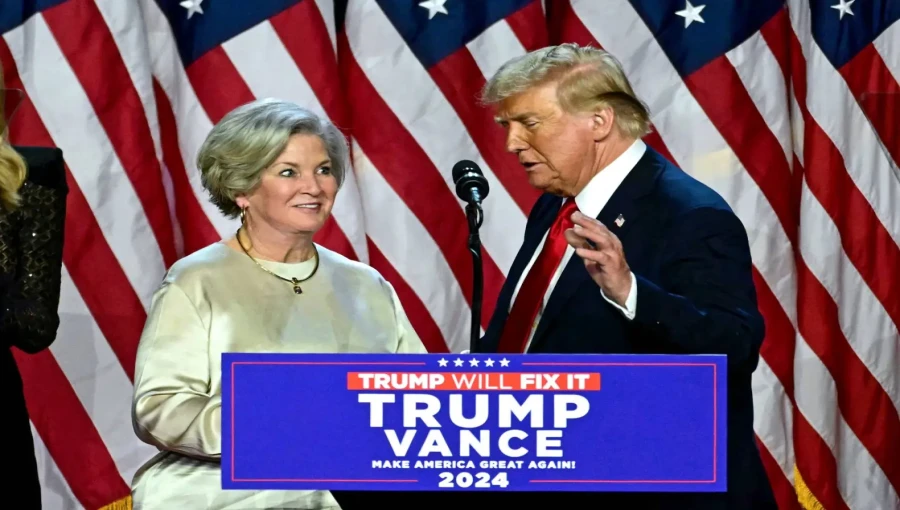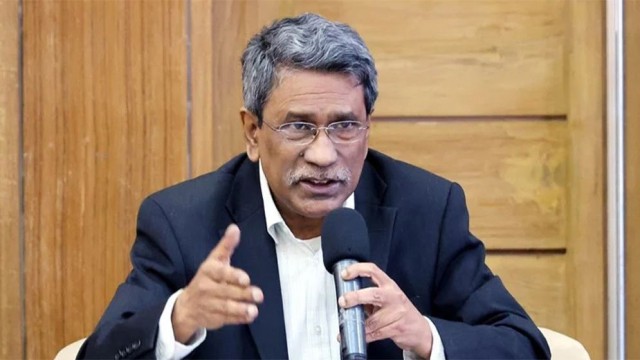Washington, D.C. Nov 08, (V7N) - As the results from the 2024 U.S. election continued to come in on Thursday, the political landscape in Washington was shifting dramatically. Both political parties were closely watching the race for control of the U.S. House of Representatives, with both sides hoping to secure a majority for the 2025 legislative session. Democrats, despite facing an uphill battle after President Donald Trump’s victory in the presidential race, were holding on to hopes of reclaiming power in the lower chamber of Congress. However, Republicans appeared to be on the verge of gaining the 218 seats needed to take control of the House, with early results putting them at 209 seats compared to the Democrats’ 197.
House of Representatives: Tight Races and Shifting Momentum
The fight for control of the House has been a key focus throughout the election cycle. With the margin for control so tight, every seat mattered. Despite their best efforts, Democrats were facing a strong challenge as Republicans began to take a lead in several pivotal races. At the time of reporting, numerous races were still too close to call, with both parties scrambling to secure as many seats as possible. The Associated Press count showed the GOP leading with 209 seats, but many key battleground races, including those in swing districts, were still in flux.
In a series of notable developments, Democrats did manage to lock down a few key wins. Rep. Val Hoyle, a freshman congresswoman from western Oregon, successfully defended her seat against Republican challenger Monique DeSpain, an Air Force veteran. Hoyle had been seeking re-election after succeeding longtime Democratic Rep. Peter DeFazio in 2022, and her victory was seen as a crucial hold for the party. Meanwhile, in New York, Democrat Laura Gillen unseated Republican Rep. Anthony D’Esposito, another win that brought some optimism to the Democratic camp in a year where they faced significant headwinds.
On the Republican side, some key incumbents held on to their seats. In Pennsylvania, Rep. Scott Perry managed to defend his seat, while Ryan MacKenzie claimed victory in a highly competitive race against Democratic Rep. Susan Wild. These results underscored the strength of the GOP's position in the House, but with many races still in play, the battle for control remained uncertain. As of Thursday afternoon, neither party had reached the necessary 218 seats to claim victory, and dozens of districts remained undecided.
Trump’s Victory: Transition of Power and a Divided Nation
While the race for the House continued to unfold, much of the focus on Thursday was also on the aftermath of the presidential election. Former President Donald Trump had claimed victory in the presidential race early Wednesday morning, securing the necessary Electoral College votes to once again ascend to the White House. Trump’s win had major implications for the direction of the country, including the future of the Republican Party, domestic policy, and the larger international landscape.
Trump, who had spent months campaigning for his return to the White House, appeared to be heading into his second term with a clear mandate from voters, particularly from non-college-educated and working-class Americans who had largely supported him. In his victory speech, Trump promised to focus on issues like border security, the economy, and addressing what he termed the "skyrocketing crime" in America. His political victory, while polarizing, signaled the continuing strength of his influence within the Republican Party.
However, Trump was not the only one speaking to the American public on Thursday. President Joe Biden, who had been defeated by Trump in this election, addressed the nation from the White House Rose Garden, pledging full support for a smooth transition of power. Biden, in his remarks, emphasized that the will of the people must always prevail in a democracy. "Yesterday, I spoke with President-elect Trump to congratulate him on his victory," Biden said. "And I assured him that I would direct my entire administration to work with his team to ensure a peaceful and orderly transition. That is what the American people deserve."
Biden’s tone was a marked contrast to his response four years earlier when Trump had refused to concede after losing the 2020 election, alleging baseless claims of voter fraud and attempting to overturn the results. Biden’s gesture of cooperation, while expected, stood as an important reminder of the peaceful transfer of power that is a hallmark of American democracy. In his speech, Biden also praised Vice President Kamala Harris, calling her a "partner and public servant" and acknowledging the historic nature of her campaign.
Trump’s New Team: Key Appointments and Policy Directions
With Trump’s victory confirmed, attention quickly turned to his transition team and the appointments that would shape his second term. One of the first major announcements was Trump’s selection of Susie Wiles, his 2024 campaign manager, to serve as his White House Chief of Staff. This appointment was notable not only because of Wiles’ role in Trump’s political successes but also because it made her the first woman in history to hold the position. Wiles, who had been an integral part of Trump’s campaigns in 2016 and 2020, was described by Trump as "tough, smart, innovative," and someone who was "universally admired and respected."
Trump’s selection of Wiles came at a time when key decisions about his administration’s future direction would soon need to be made. Given Trump’s high-profile campaign focused on immigration, national security, and economic recovery, his second term would likely focus heavily on these issues, including his previously stated goals of implementing strict immigration measures, particularly regarding mass deportations of undocumented migrants.
In an interview with NBC News, Trump confirmed that his administration would prioritize mass deportations, even as critics raised concerns over the immense cost of such an operation. Trump maintained that it was not a question of price but rather a matter of national security, arguing that too many criminals and drug lords were in the country illegally. This plan, which has been a central issue throughout Trump’s political career, would likely be one of the first priorities of his administration when he assumes office.
Challenges and Controversies Post-Election
In the wake of the election, several controversies surfaced, including reports of racially motivated text messages sent to voters across various states. The messages, which were sent either before or after Election Day, contained disturbing content, such as threats related to the Ku Klux Klan and demands for labor in what appeared to be a call for forced labor on "plantations." Local law enforcement and civil rights organizations have since begun investigating the origins of these messages, which have sparked outrage among voters and civil rights activists alike.
While the election itself had been a fierce contest, the aftermath revealed a nation deeply divided over the direction of its future. Trump’s campaign had centered on issues like border security and reducing crime, and his election win reinforced his political dominance in the Republican Party. However, the concerns raised by voter suppression tactics, disinformation campaigns, and threats against communities of color were also central to the ongoing national conversation.
The increased use of crisis services by the LGBTQ+ community also highlighted the emotional toll the election had on many marginalized groups. According to The Trevor Project, a national LGBTQ+ organization, there had been a sharp uptick in the use of its crisis services since Election Day. This surge in outreach, including a significant increase in election-related conversations, underscored the fear and uncertainty many members of the LGBTQ+ community felt about the future of their rights under a Trump administration.
Looking Ahead: A Divided Government and Uncertain Future
As the election results settled, the nation was left with the reality of a deeply divided government. While Trump’s victory in the presidential race solidified his control of the executive branch, the balance of power in Congress remained uncertain. Republicans appeared poised to secure a slim majority in the House, while the Senate, which had previously been under Democratic control, was also in a state of flux. The division between the two parties, compounded by rising partisanship, set the stage for what would likely be a contentious period of governance.
In the coming days, the focus would likely shift to the ongoing power struggle in the House of Representatives, where each party would look to shore up support and make final pushes for key races. The Senate, too, would continue to play a crucial role in shaping the legislative agenda for the next few years, particularly with regard to Trump’s proposed policies on immigration, healthcare, and national security.
Trump’s victory, combined with the shift in the House, would likely usher in a new era of conservative governance, marked by a more hardline stance on immigration, a focus on economic recovery, and a renewed push for stronger law enforcement policies. However, the growing concern over racial inequality, civil rights, and the treatment of marginalized communities remained at the forefront of national discourse.
As the transition of power began, Biden and Harris pledged to support Trump’s team in ensuring a smooth and orderly handover. Despite the challenges and divisions that lay ahead, both parties recognized the importance of maintaining the integrity of the democratic process. Whether this cooperation would last remained to be seen, but the coming months would undoubtedly be filled with tense negotiations, new policy battles, and the ongoing fight for the soul of the nation.
END/NYC/SMA/































Comment: